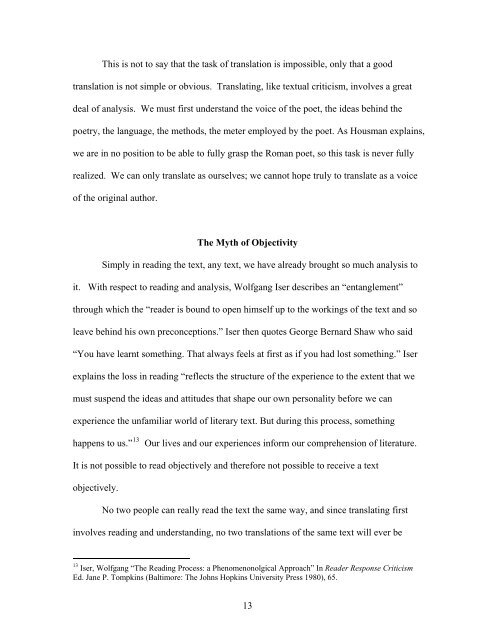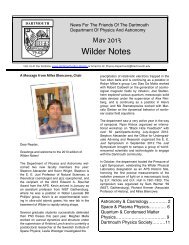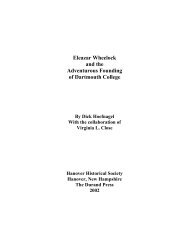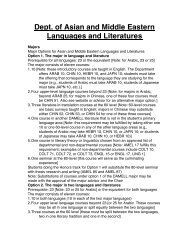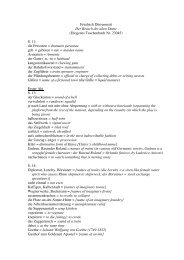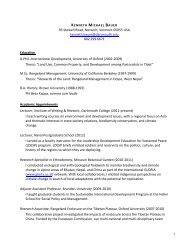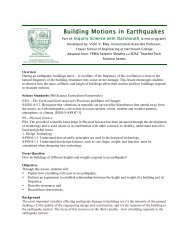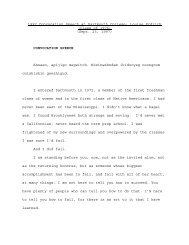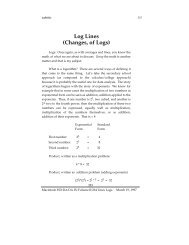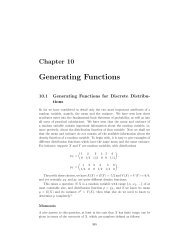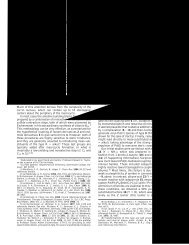A Log Cabin Out of Stone: - Dartmouth College
A Log Cabin Out of Stone: - Dartmouth College
A Log Cabin Out of Stone: - Dartmouth College
Create successful ePaper yourself
Turn your PDF publications into a flip-book with our unique Google optimized e-Paper software.
This is not to say that the task <strong>of</strong> translation is impossible, only that a good<br />
translation is not simple or obvious. Translating, like textual criticism, involves a great<br />
deal <strong>of</strong> analysis. We must first understand the voice <strong>of</strong> the poet, the ideas behind the<br />
poetry, the language, the methods, the meter employed by the poet. As Housman explains,<br />
we are in no position to be able to fully grasp the Roman poet, so this task is never fully<br />
realized. We can only translate as ourselves; we cannot hope truly to translate as a voice<br />
<strong>of</strong> the original author.<br />
The Myth <strong>of</strong> Objectivity<br />
Simply in reading the text, any text, we have already brought so much analysis to<br />
it. With respect to reading and analysis, Wolfgang Iser describes an “entanglement”<br />
through which the “reader is bound to open himself up to the workings <strong>of</strong> the text and so<br />
leave behind his own preconceptions.” Iser then quotes George Bernard Shaw who said<br />
“You have learnt something. That always feels at first as if you had lost something.” Iser<br />
explains the loss in reading “reflects the structure <strong>of</strong> the experience to the extent that we<br />
must suspend the ideas and attitudes that shape our own personality before we can<br />
experience the unfamiliar world <strong>of</strong> literary text. But during this process, something<br />
happens to us.” 13 Our lives and our experiences inform our comprehension <strong>of</strong> literature.<br />
It is not possible to read objectively and therefore not possible to receive a text<br />
objectively.<br />
No two people can really read the text the same way, and since translating first<br />
involves reading and understanding, no two translations <strong>of</strong> the same text will ever be<br />
13 Iser, Wolfgang “The Reading Process: a Phenomenonolgical Approach” In Reader Response Criticism<br />
Ed. Jane P. Tompkins (Baltimore: The Johns Hopkins University Press 1980), 65.<br />
13


